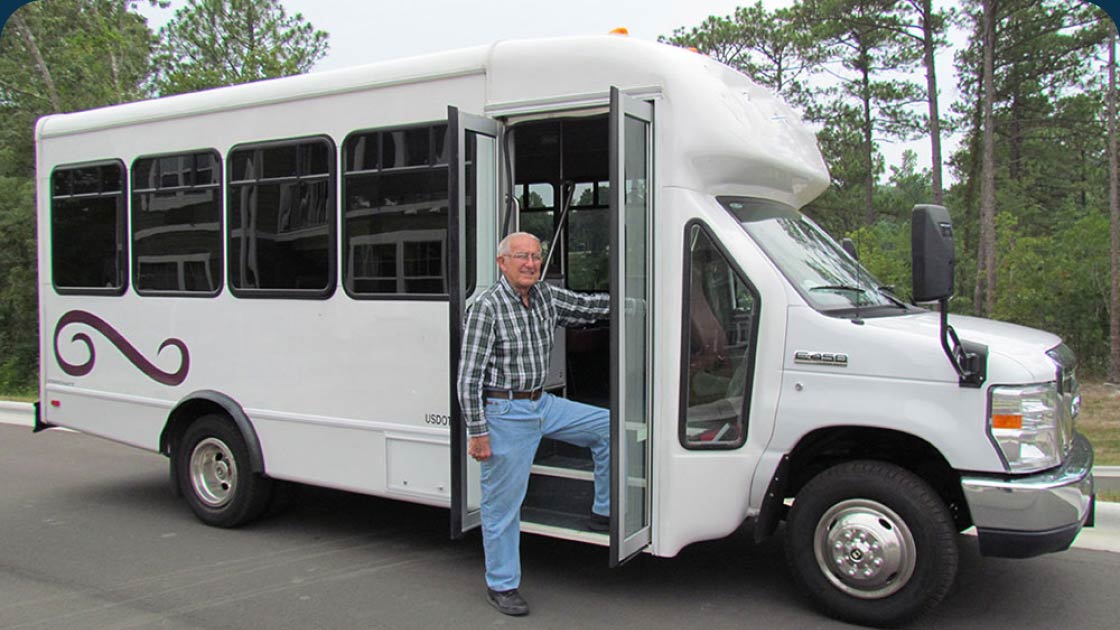Family Conversations: Supporting Independence
Navigating the delicate balance between supporting independence and inadvertently encroaching on it can be a challenging task for families. Because you may lean on your adult children for assistance from time to time, it’s common for them to form assumptions about what’s best for you. Unfortunately, these assumptions can sometimes lead to well-meaning actions that unintentionally strip away independence, causing strain and heartache for everyone involved
Throughout life, communication breakdowns are bound to occur, even among those who know each other well. Outdated beliefs, misunderstandings and emotions can cloud the communication between you and your adult children. The risk is that without open dialogue to address these misconceptions and real needs, misunderstandings can fester and deepen over time, breeding negative perceptions and straining relationships.
Preserving Your Independence Through Honest and Open Dialogue
Take control of your independence with open, honest dialogue. While you may need help with transportation, household chores or the activities of daily life, it shouldn’t come at the cost of your independence. For the sake of life satisfaction and your sense of self, you need to be in charge of determining your future and making decisions about what’s best for you.
Of course, how you have that conversation with your adult children is all-important. As you set down boundaries, you don’t want to put up barriers that will hurt your relationship with them.
Conversation Strategies About Supporting Independence
By practicing the communication strategies in this article, you can dispel common myths about aging, helping your adult children better understand your needs and goals while ensuring decisions about your independence remain firmly in your hands.
Statement of Fairness: Considering senior living options for yourself or a loved one? We’re here to help at every step. And even though we specialize in independent living communities, our goal is for YOU to find your best path to gracious retirement living, and part of how we achieve that is by providing reliable information on all types of senior living, not just the ones we offer. When our offerings serve as useful illustrations to a specific topic, you can find that information in the attached sidebar.
Before You Speak …
A meaningful conversation takes courage and forethought.
Focus on What You Really Want.
Start with yourself. After all these years of being a parent, giving advice and looking after the needs of others, the shift to you being the one in need of support can be disconcerting. You now have times when you need assistance.
Visualize the boundaries you want to set. Think of specific examples where you need help and the points when it goes over the line and becomes too much.
What are your motives? Are you honestly facing up to your challenges?
Focus on Facts.
Before you start a conversation about supporting independence, gather up facts that reinforce your viewpoint. Here are three myths about aging that many people believe.
- Myth #1: Older adults should avoid physical activity so they don’t get injured.
- Have you been hearing “Let me do that for you” way too much? Even if you have chronic conditions, movement within your means benefits you physically, cognitively and emotionally.
- Myth #2: Older adults can’t learn new things.
- Cognitive abilities don’t necessarily decline with age. The benefits of lifelong learning can even boost your mental and intellectual functions. Recent research studies show that learning a new language or studying music not only keeps older adults sharp, it improves their working memory and their ability to recall experiences associated with time, place, emotions, etc.
- Myth #3: Older adults shouldn’t drive anymore.
- No magic number tells you that you must give up your car. The National Safety Council reports that older Americans are less likely to be involved in fatal traffic crashes than people in other age groups. If there are concerns about your reaction times, eyesight or other impairments, talk to your doctor. And even if driving becomes a challenge, there are ways to stay mobile and maintain your independence, such as using senior transportation services or rideshare apps designed with older adults in mind.
Even though you have facts on your side, put yourself in your children’s shoes. Their motives come from a place of love.
Focus on Active Listening.
Successful conversations aren’t about talking, they’re about listening. Practice:
- Watching body language
- Waiting to speak until the other person is finished
- Pausing to consider your response rather than thinking of what to say while they’re talking
For example, if your child says, “I’m worried about your safety on the road,” you might respond, “I understand why you’re concerned. Let’s talk about ways I can ensure myself and others stay safe while maintaining my freedom.”
Get ready to hear things you may disagree with, but don’t take it personally. Use empathy to understand the meaning behind their words and look for opportunities to collaborate on a solution.
Setting the Tone
When it comes to sensitive topics, timing is crucial.
Choose a comfortable, quiet place where you won’t be interrupted, and no one is in a rush to be somewhere else. If interfering circumstances arise that will derail your discussion, put the topic off for another day.

Starting a Conversation about Supporting Independence
High-stakes conversations stir up strong emotions. Success depends on your being clear about your intentions and listening to the concerns of others. Encourage honesty and stress collaboration at all points in the discussion.
1. Offer praise.
Your kind words encourage others to open up.
“I’m so grateful for all your help.”
“I appreciate you all being there for me.”
“I’m proud of the caring adults you have become.”
2. State your concern.
Use I-statements, but avoid anything that sounds like an accusation.
Don’t say:
“I feel manipulated when you …”
“I feel annoyed …”
“I feel angry …”
Try:
“I want us to work together in a way that helps me stay independent.”
I appreciate your input, but it’s important for me to stay in charge of the choices about my life.
“I get real joy from ___.”
3. State your goal.
Be clear and assertive about your intentions:
“I realize I need support with ___, but I still need to make the decisions that I feel are best for me.”
“I’m looking for better ways for us to work together. What are your ideas?”
“My goal is to establish boundaries that align with what works best for me.”
Navigating Through Differences and Difficulties of Supporting Independence
Creating meaningful dialogue about supporting independence will only work if all the participants feel safe to honestly express their thoughts and opinions. No matter how old they are, your family members still want your approval and worry that you’ll judge or criticize them. At the same time, it’s essential to remind them that your independence is your priority, and these conversations are about finding ways to support that.
Ask Open-Ended Questions
These are questions that require more than a yes or no answer.
- “What concerns do you have about how I handle things now?”
- “What kind of support do you think would help me maintain my independence?”
- “How do you see your role in helping me live the way I want to?”
Validate Their Feelings.
Though you may not agree with them, rephrasing your children’s thoughts will let them know their opinion is valued.
- “I think I understand what you’re saying. Just so I’m sure, let me say it another way …”
- “I agree—supporting independence isn’t always easy. It’s about balancing needs and capabilities with personal choice and respect.”
- “It makes sense that you feel this way. It’s tough to find the right balance.”
Disagree with Respect.
Don’t let emotions derail you. Keeping your cool will encourage others to keep theirs.
- “I know we have different ideas, but consider this …”
- “I see your point, but here’s why I think this works for me.”
- “I appreciate your being so honest with me. Let me explain my point of view.”
Creating Long-Term Solutions Through Real-Life Scenarios
Addressing specific situations can help establish lasting boundaries and understandings that preserve your independence:
1. Bring up a real-life example.
“For instance, if your family started managing your schedule without consulting you, you might say, ‘I know you’re trying to help, but It’s important that I maintain control of my own plans.’
2. Explore what happened step by step.
Share how you appreciated their help but explain why it felt like it crossed a line.
3. Set clear boundaries.
*Ask for their understanding and empathy while suggesting a collaborative solution:
**”I’d like to handle this myself, but I hear your concerns, and I will commit to asking for help if I need it or feel overwhelmed.”
If disagreements arise, revisit the conversation when emotions are calmer.
Fostering Collaboration Takes Effective Communication
Even though you’ve been doing it for decades, getting the cooperation of others takes:
- Active listening to understand the other person’s perspective.
- An open heart and mind to consider their feelings and concerns and explore your own feelings of resistance and worry.
- A lot of practice to navigate challenges and maintain your independence.
Supporting Independence Involves the Whole Family
Your needs may change over time, and what was once an established boundary is now welcomed help. Revisit this communication strategy and restart the conversation by:
- Focusing on facts
- Being open and honest about your needs and boundaries
- Using empathy to encourage conversation and healthy relationships
- Searching for positive outcomes that benefit you and your adult children
Aging doesn’t mean losing your independence. You’ll enjoy a great sense of control, satisfaction and autonomy by skillfully using the wisdom you’ve gained through the years.
DID YOU ENJOY WHAT YOU JUST READ?
Join our exclusive community and subscribe now for the latest news delivered straight to your inbox. By clicking Subscribe, you confirm that you agree to our terms and conditions.
Scholl Canyon Estates
Sunny, All-Inclusive Senior Living in Glendale

Scholl Canyon Estates is designed to support your independence at every turn. Now is the perfect time to bask in the sun, make new friends and embrace the lifestyle you deserve in charming Glendale. You can expect:
- Peace of mind: Enjoy a safety call system in each apartment and a live-in management team for assistance when needed.
- Freedom to explore: Scheduled transportation allows you to maintain your social connections and explore Glendale.
- Time for you: Housekeeping services free up your time for hobbies, socializing or simply relaxing.
- Engaging lifestyle: A full calendar of activities keeps you excited and connected to your community.
Independent Living for Independent Thinkers

When you’re thinking about senior living in Rockwall, consider Liberty Heights. Not only will you have major health care facilities in easy reach, but you’ll also be minutes away from the historic downtown and Lake Ray Hubbard.
Enjoy the freedom of your own private apartment and set your daily rhythm. Pursue your passions or discover new ones in a vibrant community filled with friendly faces. Need a helping hand with daily chores? Delicious chef-prepared meals and housekeeping services free up your time for the things you love. Just think, all that is included in your monthly rent.


Frequently Asked Questions:
How can seniors set healthy boundaries with their adult children without damaging the relationship?
Seniors can maintain healthy boundaries by engaging in open, honest dialogue, focusing on their own needs and goals, and using empathy to understand their children’s perspectives. It’s important to assert independence while expressing appreciation and collaborating on solutions that work for everyone.
What are common myths about aging that can affect independence and setting boundaries between seniors and their adult kids?
Some common myths include beliefs that older adults should avoid physical activity to prevent injury, cannot learn new things or should automatically stop driving at a certain age. Addressing these misconceptions with facts can help seniors advocate for their independence and set appropriate boundaries with their adult children.
What strategies can help seniors and their adult children navigate disagreements about independence?
Effective strategies in navigating these concerns include active listening, validating each other’s feelings, using respectful language and discussing real-life scenarios to clarify boundaries. Revisiting these conversations as needs change and focusing on collaboration can foster long-term understanding and support.
FIND YOUR COMMUNITY
Related Articles
STORIES, INSIGHTS & RESOURCES
As you and your loved ones navigate the exciting opportunities retirement presents, thoughtful planning is key. Stay informed with empowering articles for seniors covering health, lifestyle, finance and more.


How to Select a Power of Attorney, and How to Talk to Your Family About Your Choice

How to Talk to Your Adult Children About Your Financial Situation

Conversations on Heirlooms
Downsizing: Dividing Up Heirlooms & Keeping Down Conflicts Have you ever looked around your home and realized there’s a lifetime of stories tucked into every…
Chronicles Of The Heart
RESIDENTS SAY INDEPENDENCE IS A TOP PRIORITY
Below, residents explain how much they appreciate the freedom they experience at our independent living community. It’s empowering to continue to make your own decisions, and you’re free to create your day around your personal interests.

